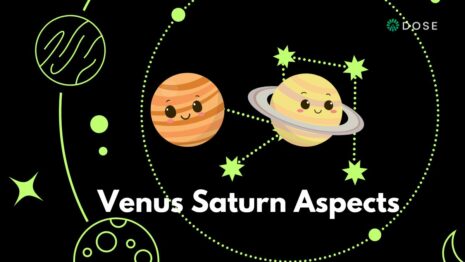DOSE is joined by Dr Vishal, Medical Director at Thriva, to help guide us on which foods could be best and worst for mental health…
Whether you’re someone who takes an active interest in nutrition or not, it’s likely that you often think about how what you eat is going to impact your physical health. It’s a complex and ever-changing subject area, but on the whole we’re becoming more aware of diet and its potential to either cause or prevent long-term physical illness.
It’s less common for us to discuss how diet can impact mental health but it’s been shown that nutrition plays a vital role in our mental wellbeing. As well as short-term effects, evidence suggests that what we eat may also impact mental health in the long-term.

Eat more fish for the mighty Omega 3s
Did you know that the ‘dry weight’ of the brain is composed of 60% fat? And 20% of the fat in the brain should be made from essential fatty acids omega-3 and omega-6.
It’s been shown that low levels of Omega-3 in the diet could be linked to number of mental health problems, including depression, concentration and memory loss; and studies have shown that increased consumption of these fatty acids can be helpful in the control of bipolar depressive symptoms.
The bad news is, we’re not getting enough of these fatty acids. In the UK we eat 59% less fish than we did 60 years ago – decreasing their consumption of omega-3. Up your intake by including more fresh water fish, flaxseed and eggs in your diet.
B Vitamins
Vitamins and minerals, also known as micronutrients, help these essential fatty acids to be incorporated into the brain and help amino acids convert into neurotransmitters.
According to various studies, B vitamins are crucial for mental health. Folate (b9) for example, plays a role in the development of red blood cells, and the metabolism of many amino acids is dependent on folate, helping the synthesis of neurotransmitters such as dopamine.
Load up on dark green vegetables like broccoli and spinach and dried legumes such as chickpeas, beans and lentils to get your quota.
The next important vitamin is B12, a vital nutrient for the production of neurotransmitters including serotonin and dopamine – the pleasure hormone. When a neurotransmitter is interrupted, and a message is not received, this can impact behaviour and mood, causing mood swings, aggression and anxiety. Pack more Vitamin B12 into your diet with eggs, dairy and fish such as tuna or sardines. If you’re vegan or vegetarian, try nutritional yeast, fortified cereals, or milk alternatives.

Gut feelings
If you’re glugging kefir and hunting out fermented foods, you’re probably already aware of the latest research into the power of our microbiome. This refers to the billions of bacteria, yeasts, fungi, viruses and protozoans live in our digestive pipes and impact our physical and mental health.
Research in this field is still nascent, but early studies have shown that gut health could have an impact on anxiety and have shown promising results testing the effects of probiotics on mood. Another recent study shows a link between the gut-biome and PTSD.
For now, it’s unclear as to what effect consuming probiotics or prebiotics will have on your health, or mood but eating fermented foods like sauerkraut or kimchi will mean you’re getting a healthy dose of both – and they certainly won’t do you any harm.
What to avoid: processed foods
There has been a lot of debate around ‘ultra-processed’ foods recently and whilst there are plenty of ‘processed’ foods that are perfectly healthy – think about Greek yoghurt, those gut-friendly fermented vegetables or even bread – our reliance on foods which are packed with salt and sugar is doing no good for our bodies or our minds.
A review conducted in 2014 found that unhealthy diets which include foods with a significant amount of saturated fats, refined carbohydrates and processed food products may be linked to poorer mental health in young people.
Further research found that high blood sugar levels can cause suppression of a growth hormone called BDNF which has a role in triggering the connections between neurons in the brain. Studies that have focused on people with depression and schizophrenia have found that in some people BDNF levels are lower than normal.
As with all advice about diet – there is no hard and fast rule and research into the links between diet and mental health is relatively new. But if you follow the general advice to eat lots of vegetables, whole foods where possible, and avoid grab and go snacks packed with salt and sugar you’ll be on the right track.
















